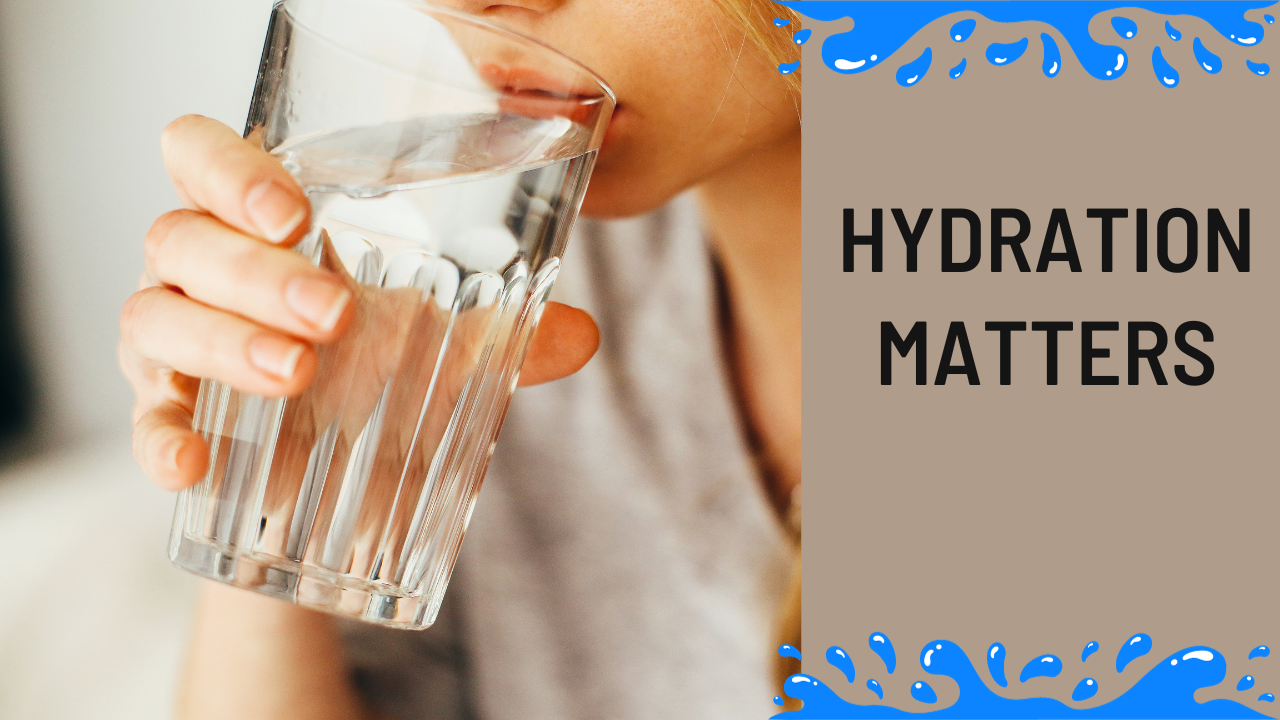In the hustle and bustle of our daily lives, amidst the myriad of health tips and wellness trends, one fundamental aspect often gets overlooked—the importance of hydration. Water, the elixir of life, plays a crucial role in maintaining our overall health and well-being. In this blog, we’ll delve into the significance of hydration, exploring its impact on various aspects of our body and why it should be at the forefront of our health priorities.
The Basics of Hydration
Water is the foundation of life, constituting a significant portion of our body. The human body is about 60% water, and it plays a vital role in various physiological functions. From regulating body temperature to aiding digestion, water is the unsung hero that keeps our intricate biological machinery running smoothly.
Impact on Physical Performance
For those engaged in physical activities, whether it’s hitting the gym, running, or playing sports, staying hydrated is paramount. Dehydration can lead to fatigue, muscle cramps, and a decline in overall performance. When we sweat during exercise, we lose fluids that need to be replenished to maintain optimal function. Proper hydration ensures that our muscles and joints work efficiently, reducing the risk of injuries and enhancing endurance.
Cognitive Function and Mood:
Surprisingly, the state of our hydration can significantly influence our cognitive abilities and mood. Studies have shown that even mild dehydration can impair concentration, alertness, and short-term memory. A well-hydrated brain operates more efficiently, promoting clearer thinking and better decision-making. Additionally, dehydration has been linked to an increase in feelings of irritability and anxiety, emphasizing the connection between our hydration status and mental well-being.
Weight Management:
For those on a weight management journey, water can be a valuable ally. Often, our bodies can confuse thirst with hunger, leading to unnecessary calorie consumption. By staying adequately hydrated, we can reduce the likelihood of overeating and support our metabolism. Additionally, drinking water before meals can create a feeling of fullness, contributing to controlled portion sizes and, consequently, weight maintenance.
Digestive Health
Water plays a crucial role in the digestive process. It helps break down food, allowing nutrients to be absorbed more effectively in the digestive tract. Proper hydration can prevent constipation and promote regular bowel movements, contributing to a healthy and well-functioning digestive system. Adequate water intake also supports the liver and kidneys in their roles of detoxification and waste elimination.
Skin Health
If you’re searching for the elixir of radiant skin, look no further than water. Dehydration can lead to dry and flaky skin, exacerbating conditions such as eczema and acne. Staying well-hydrated helps maintain skin elasticity, reducing the appearance of fine lines and wrinkles. It also promotes a healthy complexion by flushing out toxins through sweat, giving your skin a natural glow.
Regulation of Body Temperature
Maintaining a stable body temperature is crucial for our overall well-being. Water plays a central role in thermoregulation, helping the body release heat through sweating. In hot climates or during physical exertion, the risk of dehydration and heat-related illnesses increases. By staying hydrated, we support our body’s ability to cool itself, preventing conditions like heatstroke and heat exhaustion.
Signs of Dehydration
Recognizing the signs of dehydration is essential for prompt intervention. Common symptoms include dark urine, dizziness, dry mouth, and lethargy. Thirst is a clear signal from our bodies that it’s time to replenish lost fluids. Ignoring these signs can lead to more severe complications, emphasizing the importance of heeding our body’s cues and maintaining a consistent approach to hydration.
Tips for Staying Hydrated
Practical tips to ensure we meet our daily water needs:
- Set a Water Intake Goal: Establish a daily water intake goal based on factors like age, weight, and activity level. This can serve as a benchmark to track your hydration progress.
- Carry a Water Bottle: Keep a reusable water bottle with you throughout the day. This makes it convenient to take sips regularly, whether you’re at work, running errands, or exercising.
- Incorporate Hydrating Foods: Include water-rich foods in your diet, such as fruits and vegetables. Cucumbers, watermelon, and oranges, for example, have high water content and contribute to overall hydration.
- Create Hydration Habits: Form habits that promote hydration, such as drinking a glass of water upon waking up, before meals, and before bedtime. Consistency is key to maintaining optimal hydration levels.
- Monitor Urine Color: Pay attention to the color of your urine. A pale yellow color indicates adequate hydration, while dark yellow or amber may signal dehydration.
- Flavor Your Water: If plain water feels monotonous, infuse it with natural flavors by adding slices of fruits like lemon, lime, or berries. Herbal teas and coconut water are also hydrating alternatives.
- Set Reminders: Use technology to your advantage by setting reminders on your phone or smartwatch to prompt you to drink water regularly.
In a Nutshell
In conclusion, the importance of hydration cannot be overstated. From supporting physical performance to enhancing cognitive function and promoting overall well-being, water is a fundamental element in the intricate dance of life. By prioritizing hydration and adopting simple habits to ensure adequate water intake, we can unlock the full potential of our bodies and minds. So, let’s raise a glass to good health and the power of hydration!
